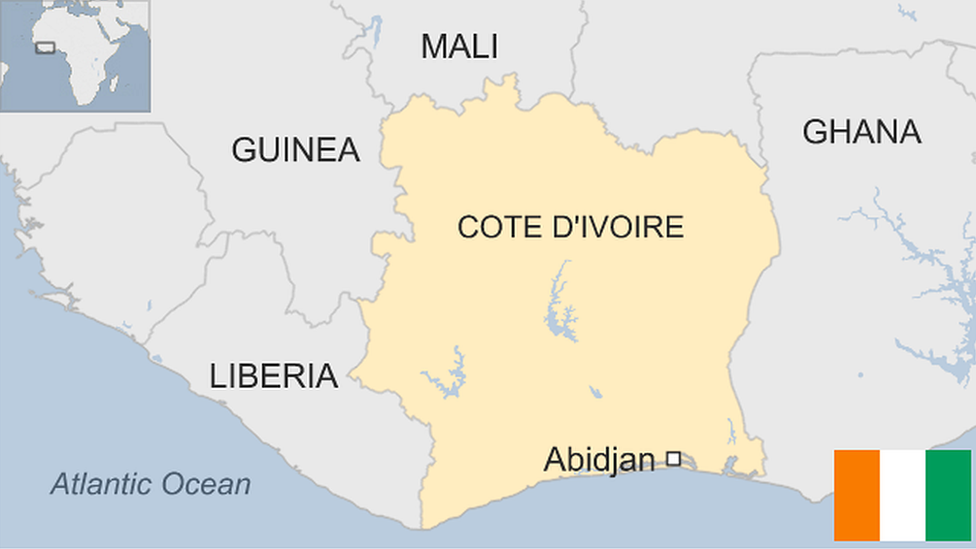Is Ivory Coast ready for presidential elections?
- Published
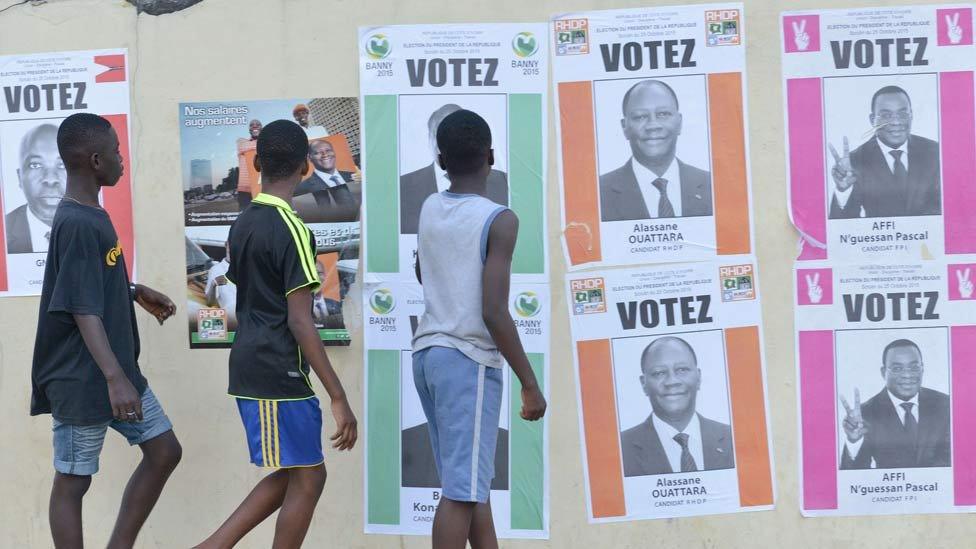
Voters in Ivory Coast go to the polls on Sunday 25 October to elect a new president, five years after the world's largest cocoa producer descended into post-election violence that left more than 3,000 people dead and thousands more displaced.
Mistrust is still part of the political scene with three candidates - the latest, Charles Konan Banny, on Friday - withdrawing from the contest, citing concerns about the election process as their reason for doing so. Other candidates have predicted massive vote rigging.

Who are the main candidates?
Incumbent President Alassane Ouattara: A trained economist and former International Monetary Fund executive, Mr Ouattara is the candidate of the ruling Rally of Houphouetists for Democracy and Peace coalition.
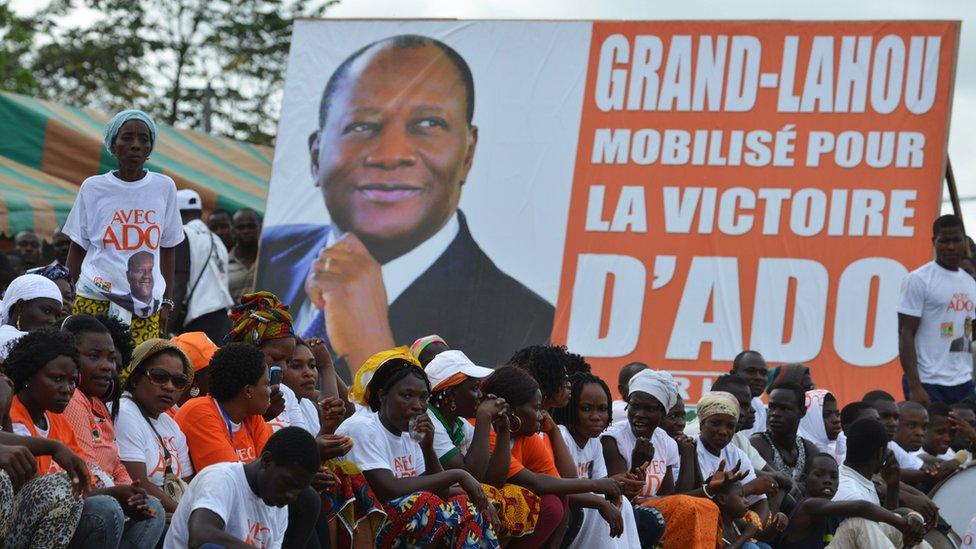
Alassane Ouattara is known to his supporters as "Ado" because of his initials
He once served as prime minister, and before that as governor of the Central Bank of West African States.
Aged 73, he has promised not to seek a third term if re-elected. He has also promised lower taxes and to "lighten the social burden".
Pascal Affi N'Guessan is the candidate for Mr Gbagbo's opposition Ivorian Popular Front (FPI), and was prime minister from 2000 to 2003.
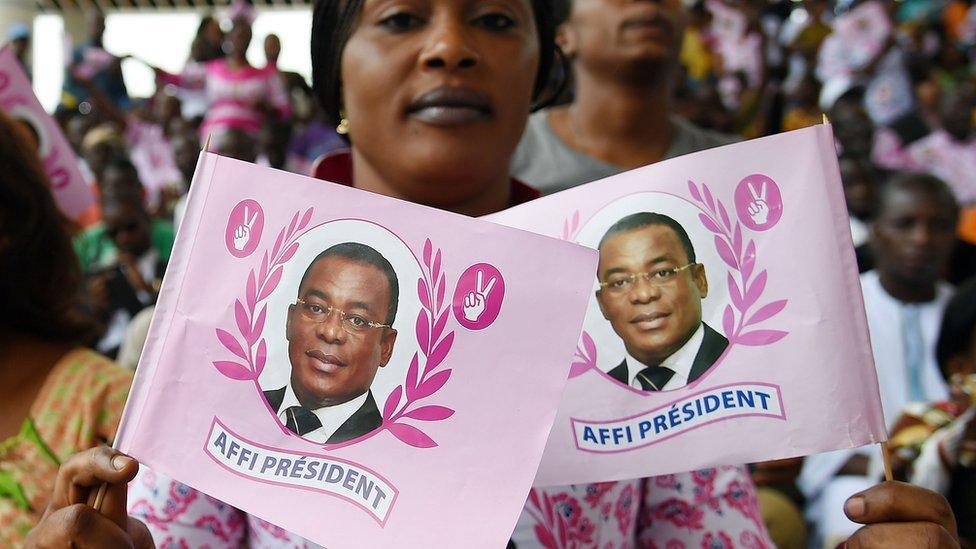
Pascal Affi N'Guessan argues that justice has become one-sided in Ivory Coast
The 62-year-old telecommunications engineer is under fire from an FPI faction which wants Mr Gbagbo as their candidate despite him awaiting trial for alleged crimes against humanity at the International Criminal Court (ICC).
Mr N'Guessan's campaign message has been that Mr Gbagbo should be released, and analysts feel that calling for this at every turn strengthens his position with the party faithful.
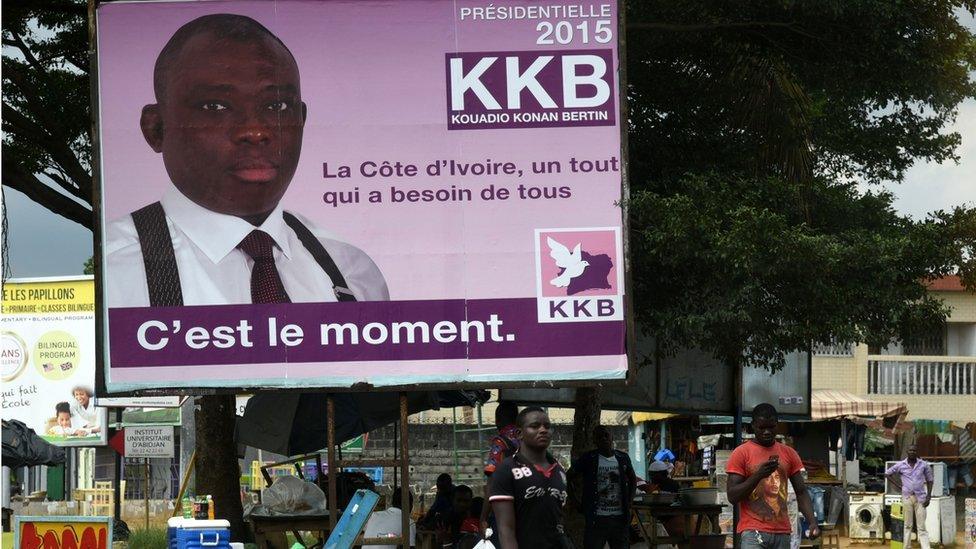
Kouadio Konan Bertin is another candidate who is known by his initials, "KKB"
Kouadio Konan Bertin, 47, is an MP and was once youth leader in the former ruling Democratic Party of Ivory Coast.
He has pledged to bring home thousands of Ivorian political dissidents living in exile "so that we can wash our dirty linen at home".

Who will win?
Mr Ouattara seems likely to win. Ivorian newspaper Fraternite Matin suggests his development programmes will work in his favour and that "the opposition can be considered fractured".
Can spreading Ivory Coast's culture and traditions prevent any future return to violence?
Satirical Ivorian newspaper Gbich believes Mr Ouattara will win because his campaign machine has covered the entire country, unlike his rivals' efforts.

How does the system work?
The election will be overseen by the Independent Electoral Commission (CEI), chaired by Youssouf Bakayoko, a former foreign minister, despite calls from the opposition for him to be dismissed for alleged bias.
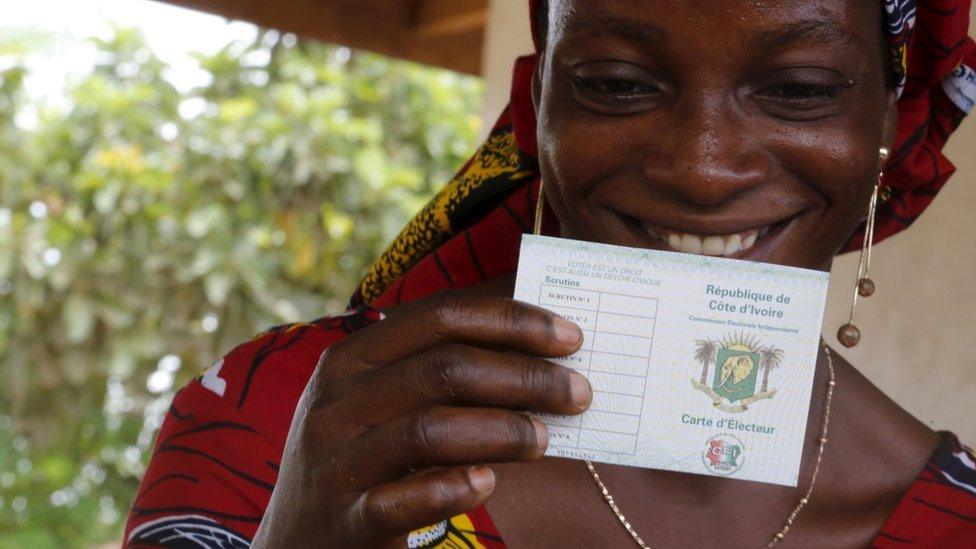
The vote is meant to draw a line under years of political turmoil
The CEI says it has registered more than 6.3 million voters out of a population of slightly more than 22 million.
All Ivorians over 18 may vote, including expatriates. The president is elected by an absolute majority popular vote in two rounds if needed.

What are the security issues?
Insecurity remains a serious threat partly because some former rebels did not surrender their weapons, and partly because of the widespread availability of illegal firearms.
An Abidjan resident tells the BBC's Christian Parkinson about violence after the 2010 polls: "You'd go out to buy bread and find death."
The government says about 10,000 firearms have been recovered from civilians since November 2011, but the number still in circulation is unknown.
Another worry is the threat of Islamist terror attacks in the wake of raids in June on the Malian villages of Fakola and Misseni, which border Ivory Coast to the north.
Ansar Dine, which along with other al-Qaeda-linked groups took over control of northern Mali for several months in 2012 and 2013, said it was behind the attacks.

Will the election be credible?
Kouadio Konan Bertin has accused the government of planning "massive rigging" and of preparing a tailor-made voters' roll to register its supporters.
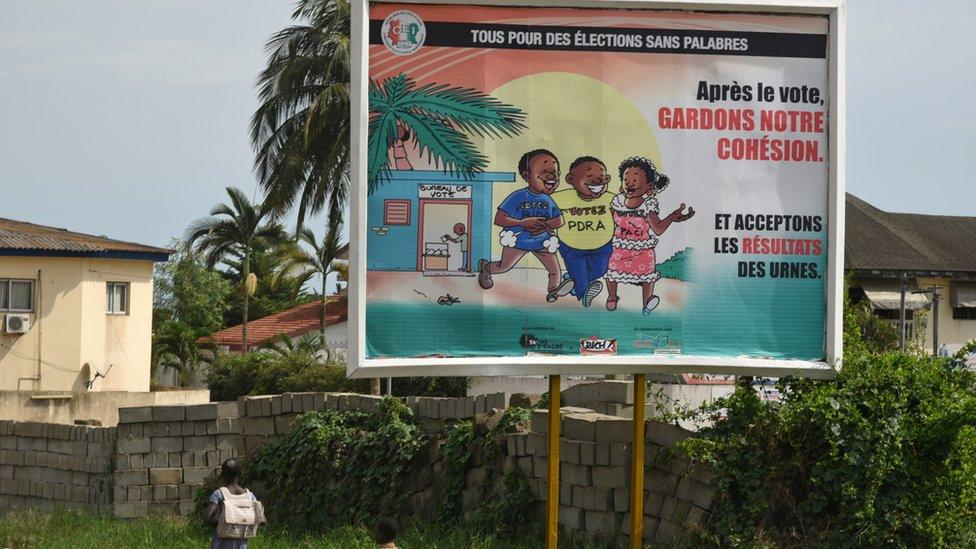
This Independent Election Commission poster calls for citizens to "accept the results of the ballot box"
However, President Ouattara has pledged a "peaceful, democratic and transparent" poll.
"Ivory Coast would like to set an example after the (2010) post-electoral crisis," he has said, but Ivorians must overcome their voter apathy first.
BBC Monitoring, external reports and analyses news from TV, radio, web and print media around the world. You can follow BBC Monitoring on Twitter, external and Facebook, external.
- Published24 October 2015
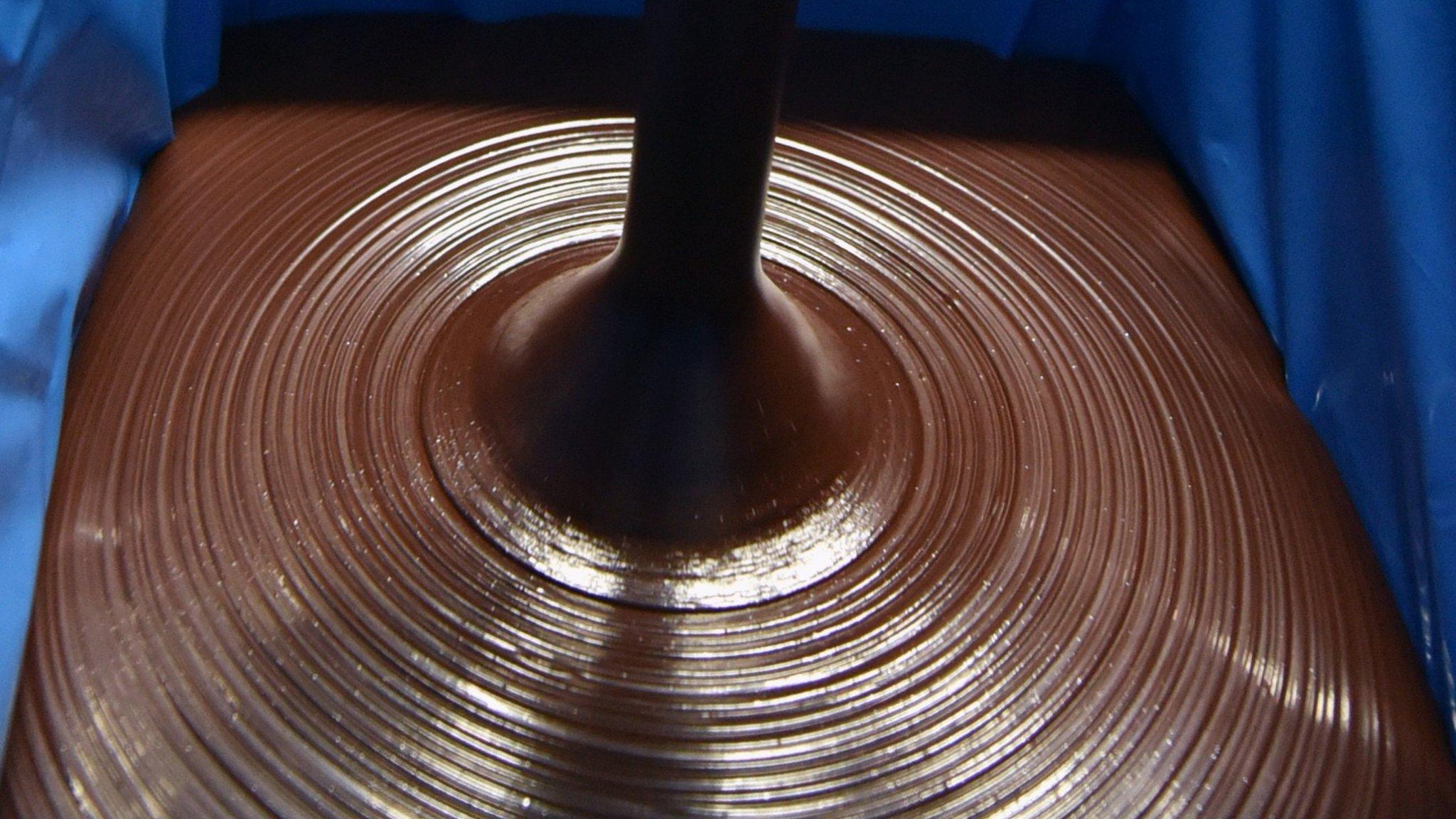
- Published19 October 2015
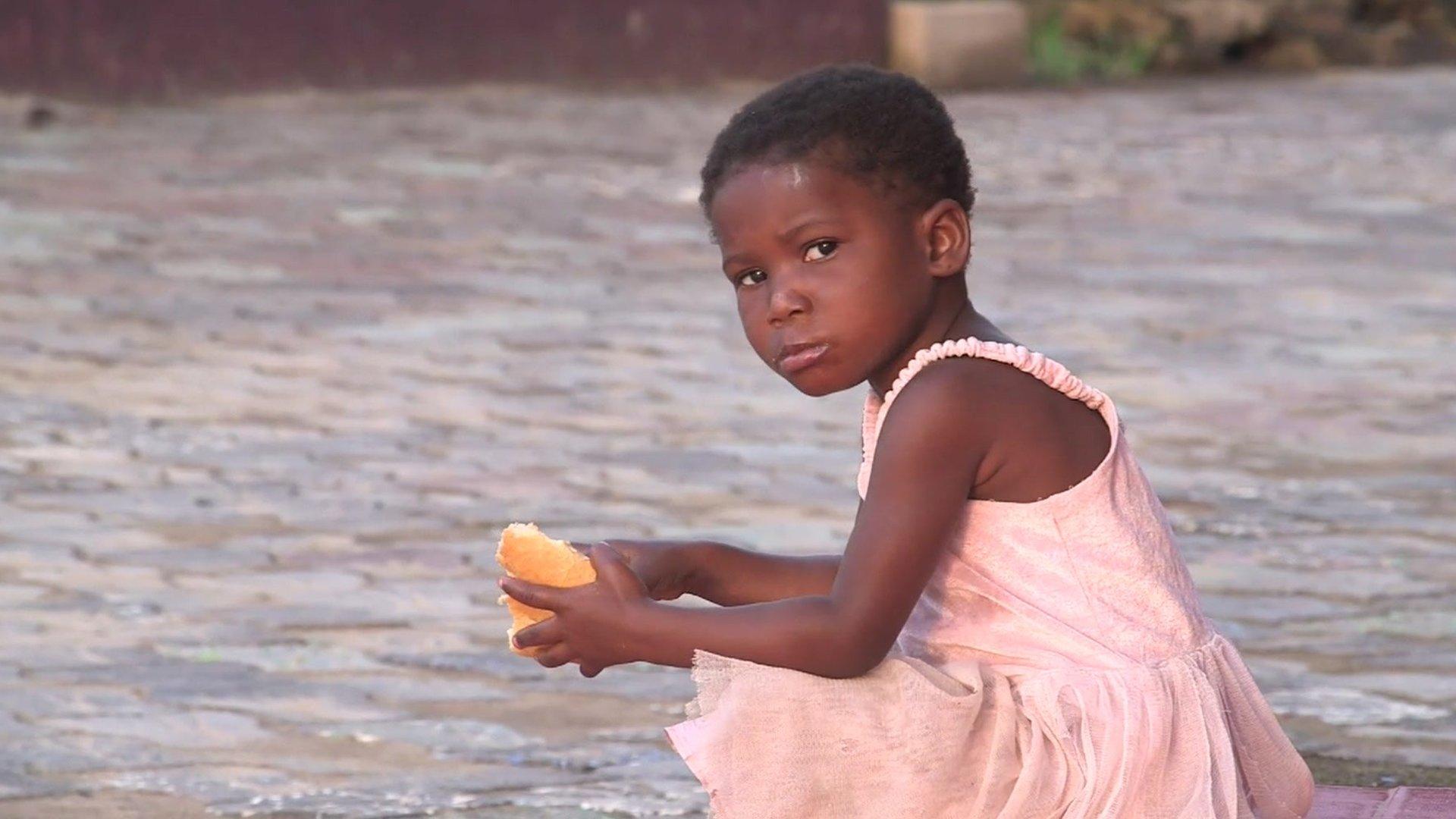
- Published9 October 2015
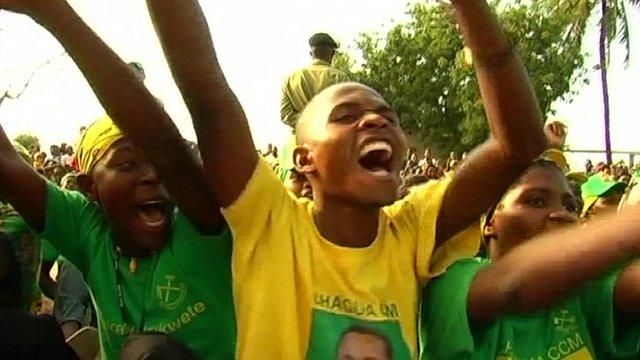
- Published24 July 2023
